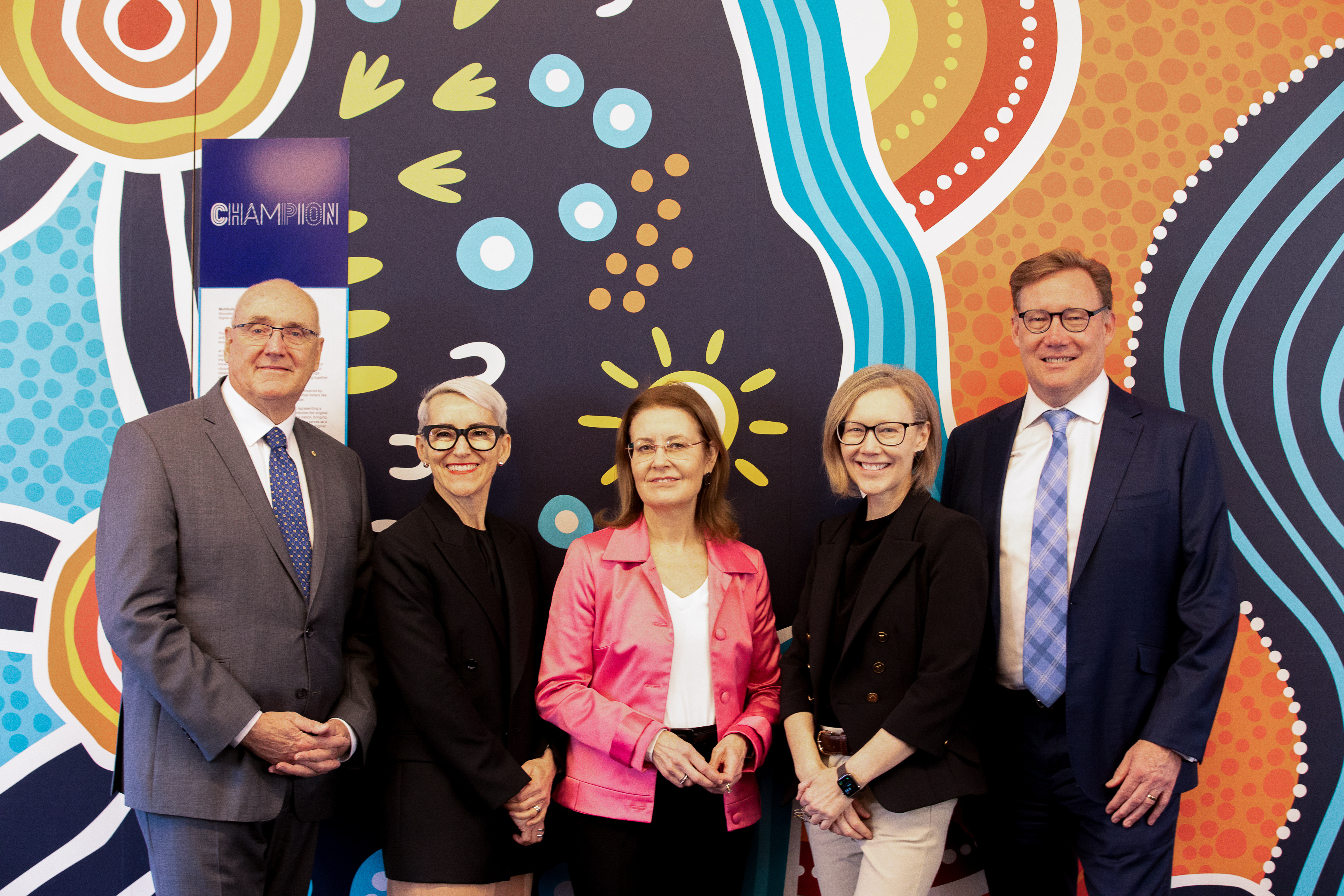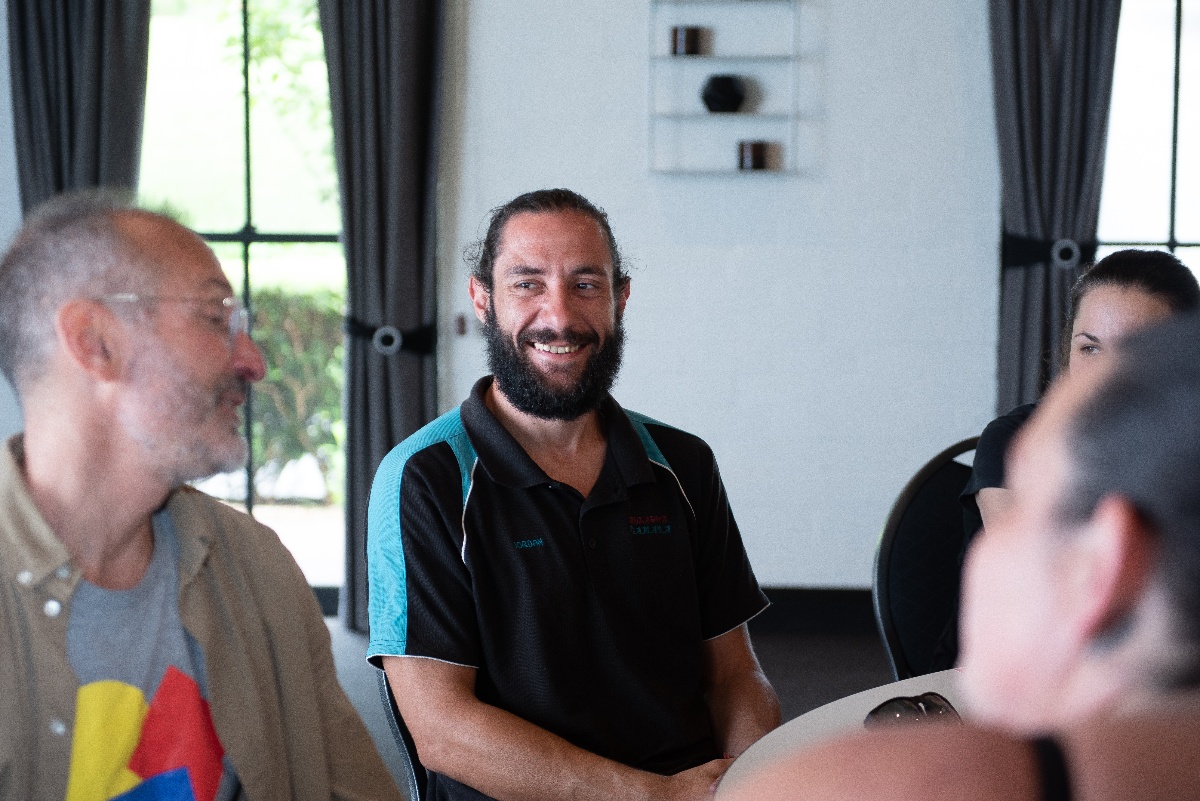Stories
Tackling today’s ‘skills crisis’ to build Australia’s tomorrow
Last Friday (23 August), SSE convened an expert panel to explore Australia’s critical skills gap and the future economy. The panel was chaired by SSE’s own CEO, Dr Sarah Jones, and comprised Professor Barney Glover AO, Commissioner of Jobs and Skills Australia (JSA), The Hon Gabrielle Upton, TAFE NSW Manager Director Steve Brady, and Executive Director of Skills & Pathways at the NSW Department of Education, Suzie Matthews.
The wide-ranging discussion underscored Australia’s urgent need for a strategic approach to skills training and a systemic framework to build workforce opportunities that will secure our nation's future prosperity, with panellists exploring the challenges and significant opportunities highlighted by current data around workforce demand, skills shortages, future job trends, diversity, and regional development opportunities; arguably some of the biggest issues facing our country today.
In her opening address, Dr Jones threw down the gauntlet, inviting the panellists and the audience to think about the broad implications of not taking systemic action now, and to explore solutions through an equity and diversity lens.
In his powerful Keynote Address, Professor Glover shared research undertaken at JSA, and proffered data-rich insights about the current and future landscape of Australia’s workforce needs. The Commissioner talked about the need for a ‘harmonisation’ of tertiary education as a joined-up system, in line with the recommendations of the Australian Universities Accord, as an essential component of delivering effective and equitable impact. “[JSA is] very interested in cohesive and connected and collaborative tertiary education. We have to be a part of that,” he said.
Those in regional areas are at a comparable disadvantage, Professor Glover noted, as are women, especially new parents, whose access to early childhood care demands deep consideration when exploring skills issues and gender challenges in our workforce.
Young people key to filling skills gaps
The labour force of tomorrow will be filled largely by today’s high school students. With over 300,000 of these students in NSW alone preparing to make subject choices that will directly impact the profile and supply/demand of future skills, they will need to be supported by the entire system to help meet outcomes.
A clear message for all learners when thinking about the workforce, industry needs, employment opportunities, career pathways, and lifelong learning, is that “skills are the lingua franca of employers now,” rather than accreditations and/or qualifications, Professor Glover observed.
TAFE NSW’s Steve Bradbury agreed, highlighting that young people (or their key influencers) are often not exposed to the full suite of opportunities available to them in any realistic way, which limits their subject choices and career considerations. “We really need to engage with the school system when people are much younger, to start to show them ‘What does this [skills-based career choice] look like?’, ‘What does a career in the VET [vocational and educational training] qualification they leave to do actually look like’?” The whole panel talked enthusiastically about TAFE/VET not as a ‘second-choice’ or ‘last resort’, but as a ‘first choice’ option that can open doors to more diverse careers and developing lifelong employability skills. And this applies to all learners, not just young people. “The breadth of opportunity in VET training is amazing,” Steve continued.
“Take our Institute of Applied Technology (IAT) at Meadowbank. Most of the people coming through that institution are people who are already in the workforce, in their 30s or 40s, who are upskilling and thinking about how the economy is changing around them and looking for ways to capture opportunities and manage threats.” By way of example, Steve, shared the story of “a woman from a regional community on the NSW Central Coast who runs an art gallery. She's just completed a qualification in cyber security at the IAT so that she can protect her donors, her artists, and her local community. It’s a really interesting example of how digital skills apply across the whole economy, and of how people are using VET to deepen their understanding within their existing models and sideways within their industries.”
The vital role of collaboration between key players
The panel agreed that partnerships are key to ensuring the whole system works, and industry needs to play a proactive role in identifying and formulating the learning and skills required. Bringing training and employment opportunities together requires “true partnership with industry, […] a greater investment, both from government and industry, to believe in and to create the change that’s needed. [We’re talking about] a staggering number of new roles.” Steve Brady said.
Everyone agreed that the ongoing relationship—the interoperability—between entire communities was pivotal to driving a lasting, long-term uplift in skills and skills training. Skills building doesn’t take place in a silo—there are numerous other societal challenges that need to be addressed, and lasting change requires everyone across education, government, industry, and community working together to achieve the same goals.
NSW Department of Education’s Suzie Matthews flagged the role of the Department’s Digital Skills Compact, an initiative involving 40 stakeholders, including Microsoft, CommBank, the Department of Education, TAFE, and others in “bringing people to the table”.
While there is ongoing debate around Government’s role or responsibility in driving skills building, Professor Glover noted that “the convening power of Government should never be underestimated.” Gabrielle Upton concurred, further noting that she would advocate for a legal obligation and liability in both small and large organisations, because “regulatory impact can make a big difference” in driving lasting change.
Maximum benefit for minority communities
The discussion also focussed on the importance of supporting those from Indigenous and remote communities—First Nations people who may not have had extensive exposure to VET or post-secondary education, for example—and emphasised the need to provide tailored and ongoing support to help them step through the ‘door of opportunity’.
Professor Glover and the panellists explored the concept of stackable qualifications, microskills, and pathways as crucial elements in transforming lives through education, especially from an equity perspective. Steve Brady highlighted that about 30% of the 400,000 TAFE NSW students come from Culturally and Linguistically Diverse (CaLD) backgrounds, underlining the need to offer opportunities that allow individuals to earn, work, and learn simultaneously, which is essential for retention.
At SSE, we know that addressing skills gaps isn’t just about filling jobs. It’s about securing a prosperous future for all Australians, regardless of where they live or their diverse backgrounds. Through our ambitious Strategy 2023-2026, SSE works to empower and build the skills capability of more diverse Australians. If you share a similar vision and want to change the face of this country, we’d love to partner with you. Together, we can build a more prosperous, inclusive, diverse, and innovative economy and harmonious society.
National Skills Week guest panellists:
Professor Barney Glover, Commissioner, Jobs and Skills Australia, who gave the keynote address and provides insights into the current and future landscape of Australia’s workforce needs
Stephen Brady, Managing Director of TAFE NSW, shared his insights on the transformative power of VET in aligning training with industry demands and fostering public sector innovation.
The Hon. Gabrielle Upton, Former Government Minister and Non-executive Director, discussed the role of VET in equipping individuals with the practical skills needed to drive innovation and economic growth.
Suzie Matthews, Executive Director of Skills & Pathways, NSW Department of Education, focused on the importance of integrating VET into the school curriculum to prepare students for the workforce and lifelong learning.
Related Stories



